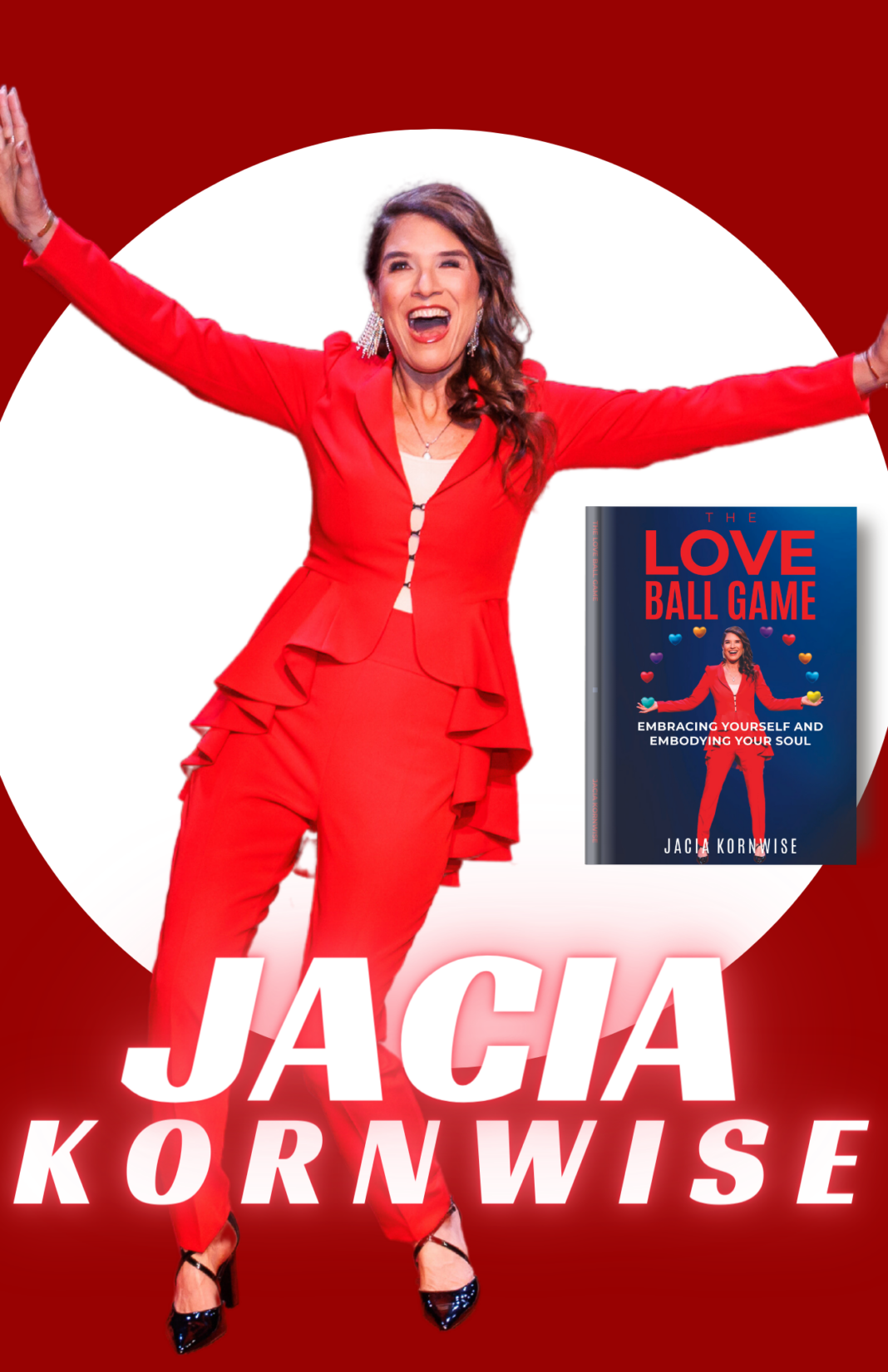In a world filled with chronic pain, migraines, and sleeplessness, Jacia Kornwise stands as a beacon of hope, offering a unique approach to healing that goes beyond traditional medical interventions. As a survivor of multiple traumas and a highly trained professional dedicated to helping others break free from the shackles of suffering, Jacia has discovered a powerful solution that saved her life and has the potential to transform countless others: conscious, free-form movement.
As Jacia takes the stage, her presence is commanding yet warm, and her journey unfolds in a narrative that weaves personal experience with professional expertise. “Do you know someone who suffers from chronic pain, migraines, sleeplessness, and nothing medical seems to help, or your friend who takes their pain to therapists, coaches, and support groups for years, and not much changes?” she begins, immediately striking a chord with the audience.
Jacia’s story is not just a recounting of personal struggles but a testament to resilience and the relentless pursuit of solutions. “I know all of those people because at some point or other, those people were me,” she shares, inviting the audience into the depths of her own journey. “As a survivor of multiple traumas and 31 years as a highly trained professional on fire, seeking solutions to help others like myself who suffer, my life has been dedicated to cracking this code because no one wants to be ruled by pain.”
Her words resonate with empathy, drawing listeners into a conversation about the limitations of conventional approaches to pain management. Jacia challenges the notion that physical pain is purely a result of bodily ailments, suggesting a deeper connection between the body, mind, and heart. “What if the reason we still suffer is that it is not just physical pain in our bodies? Our bodies carry the trauma, not only of broken bones but of broken hearts and shocked minds.”
It’s here that Jacia introduces her revolutionary concept — conscious, free-form movement. She cautions the common alternatives like exercise for exercise’s sake or external treatments like massage and acupuncture, offering a perspective that places the solution firmly within one’s control. “What if the solution is in your control, guided by your willingness to be present in your body, to breathe with it, to feel it, to move it, to release it, to embrace it? It’s like a dance, but no one taught you the steps.”
Jacia’s analogy of dance becomes a central theme, a metaphor for the innate and instinctive way our bodies can find healing when given the freedom to move without constraints. “Yet we think, because the trauma is complex, the solution must be too. But really, it’s our minds and our hearts disconnected from our bodies that make us so complex.”
With sincerity and conviction, Jacia addresses potential skeptics in the audience, acknowledging the incredulity that dancing could be a legitimate path to healing trauma. “I have survived so much trauma this lifetime. If you knew, you’d be shocked. Conscious, free-form movement is a solution that saved my life and thousands of others.”
To support her claims, Jacia cites a 2021 UCLA study that examined over 1,000 free-form, conscious movers with histories of clinical depression, trauma, and anxiety. The results are staggering — 98% of participants experienced significant improvement. This compelling evidence positions conscious free-form movement as one of the most effective tools for trauma, opening pathways to presence, safety, and joy.
Her message extends beyond trauma survivors, emphasizing the universal applicability of her approach. “Not just for trauma survivors, really for anyone. The message I bring to the stage brings the power back to people who have been feeling powerless.”
Jacia passionately challenges the misconception that movement requires a preexisting sense of well-being. “I’m tired of witnessing folks unwilling to move because they believe you need to feel better in order to move, and that feeling just never seems to come. It’s just not true.”
In conclusion, Jacia Kornwise’s presentation transcends the stage, becoming a call to action for those seeking liberation from physical and emotional pain. Her words echo the transformative power of conscious, free-form movement, inviting everyone to reconnect with their bodies from within. As the curtain falls, the audience is left with a profound question: “Could you be dancing your way to healing?”







